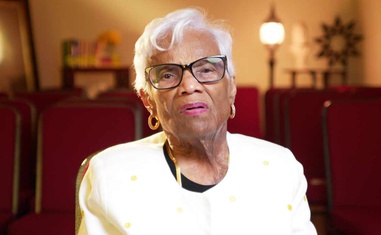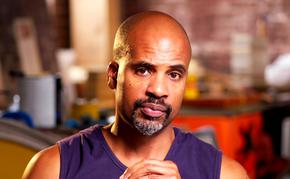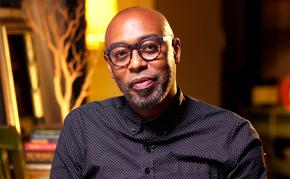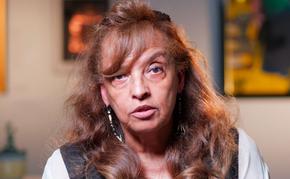“The only answer to the race problem in our country is the [Baha’i] teachings,” says Wilma Ellis Kazemzadeh, a Black Baha’i based in the Los Angeles area.
According to the Baha’i teachings, “racial prejudice, the corrosion of which, for well-nigh a century, has bitten into the fiber, and attacked the whole social structure of American society,” should “be regarded as constituting the most vital and challenging issue.”
“The ceaseless exertions which this issue of paramount importance calls for, the sacrifices it must impose, the care and vigilance it demands, the moral courage and fortitude it requires, the tact and sympathy it necessitates, invest this problem, which the American believers are still far from having satisfactorily resolved, with an urgency and importance that cannot be overestimated,” wrote Shoghi Effendi, the Guardian of the Baha’i Faith.
In this video for the Race Unity Project, Wilma reflects on how she often referred to the guidance of the central figures of the Baha’i Faith — the Bab, Baha’u’llah, and Abdu’l-Baha — to inspire her in her pursuits for racial justice. Produced by Journalism for Change, Inc, a nonprofit media organization founded by filmmaker and human rights activist Maziar Bahari, the project tells “the century-long story of the American Baha’i community and its efforts — as well as its tests and challenges — in promoting race unity.” Videos from “The Race Unity Project” include a variety of candid interviews about race — including stories of how the Baha’i community was an interracial refuge for Black people during segregation and reflections on how a Baha’i advocate for justice showed Baha’is the path to race unity.
“We [Baha’is] had to learn how to respond [to racism] in a Baha’i context,” Wilma says. “I always went to the book. What did Abdu’l-Baha say when he came here and saw for himself the good, the bad, and the not so good?”
RELATED: What Does a Racism Intervention Look Like?
Indeed, in 1912, Abdu’l-Baha, the son of Baha’u’llah, the prophet and founder of the Baha’i Faith traveled to North America and gave more than 400 talks coast to coast about peace and unity. On his 14th day in the United States, Abdu’l-Baha deliberately broke the color line by insisting that Louis Gregory, a prominent Black attorney, sit on his right side in a place of honor during a dinner hosted by some of Washington, D.C.’s wealthy white elite.
Reflecting on the present-day, Wilma shares how one Baha’i community in California engages with its local government and police department about the equality of and inherent, God-given nobility of people of African descent.
“I think we have a long way to go [to get] to race unity, but at least, I think, we’re on the path,” Wilma says. “But it’s slow. It’s very, very slow. And it’s not that people want to be bigoted, it’s simply they don’t know how not to be.”
Radiance Talley is the director of operations at BahaiTeachings.org. She graduated from the University of Maryland with a degree in communication, a College Park Scholars Arts Citation, and a cognate in journalism. In addition to her writing, drawing, presentation, and public speaking experience, Radiance also...
READ MORE

















Comments
Sign in or create an account
Continue with Facebookor